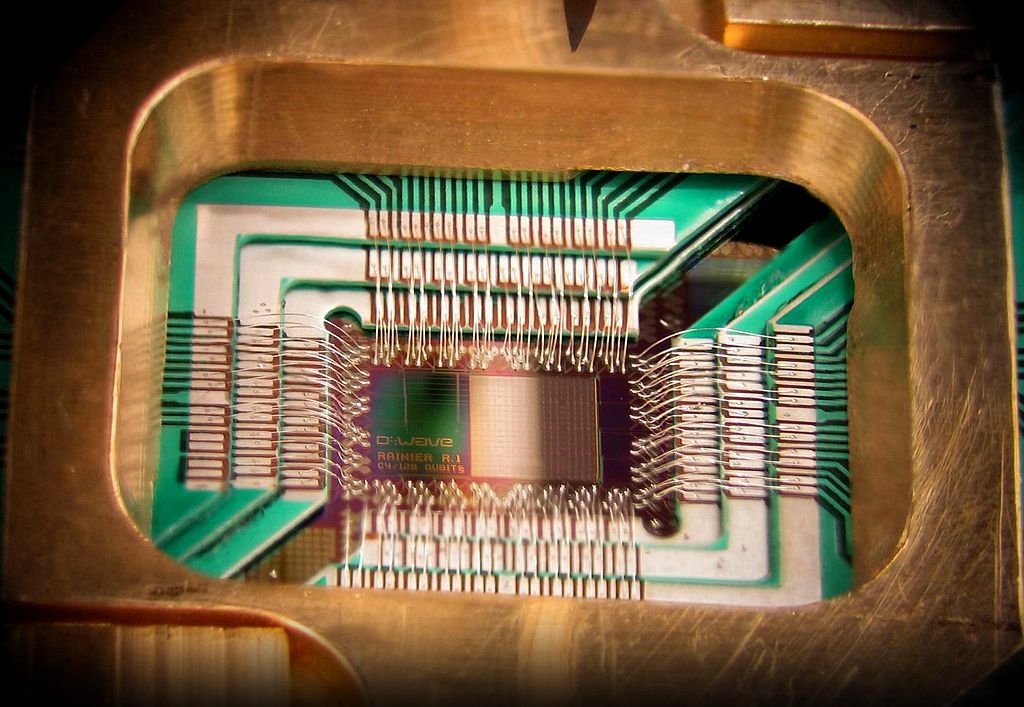Universal Quantum Computers are computers that make use of the counterintuitive properties of quantum mechanics to perform a variety of computational tasks. Contrary to classical computers which use bits – represented by macroscopic physical quantities such as electric voltage, quantum computers use quantum bits “qubits” – represented by microscopic physical quantities such as trapped ions or electron pairs in superconducting circuits. So although the fundamentals are very different, a commonality between quantum computers and classical computers is the use of logic gates to perform computations.
Universal Quantum Computers are in the early stages of development. At this moment they have a limited number of qubits. These qubits are very sensitive to outside influences, therefore a significant proportion of qubits need to be used for ‘error correction’, ironing out errors that inevitably occur. Because the number of practically useful qubits is very limited, universal quantum computers have very limited use at this stage. It will take years of research and engineering to build practically useful devices.
Quantum Optimization Systems are different from Universal Quantum Computers in the sense that they are narrowly focused on optimization.
One approach – taken by D-Wave – is to build physical hardware to perform quantum annealing, a methodology for finding the global minimum of an objective function. These machines have a special purpose architecture and do not implement logic gates – but currently hold over 5000 qubits, two orders of magnitude more than most Universal Quantum Computers.
Another interesting approach in the same category is quantum inspired optimization, such as available on Azure Quantum by Microsoft. While running on classical high performance computers, these algorithms are novel and – as the name suggests – inspired from quantum computing, quantum inspired optimization algorithms have demonstrated interesting results for industry size problems in different applications.
So these Quantum Optimization Systems are more mature than Universal Quantum Computers, but also more narrow in their use. For Qubit Engineering, Quantum Optimization Systems are the most practical to perform complex optimization tasks.


Leave a Reply